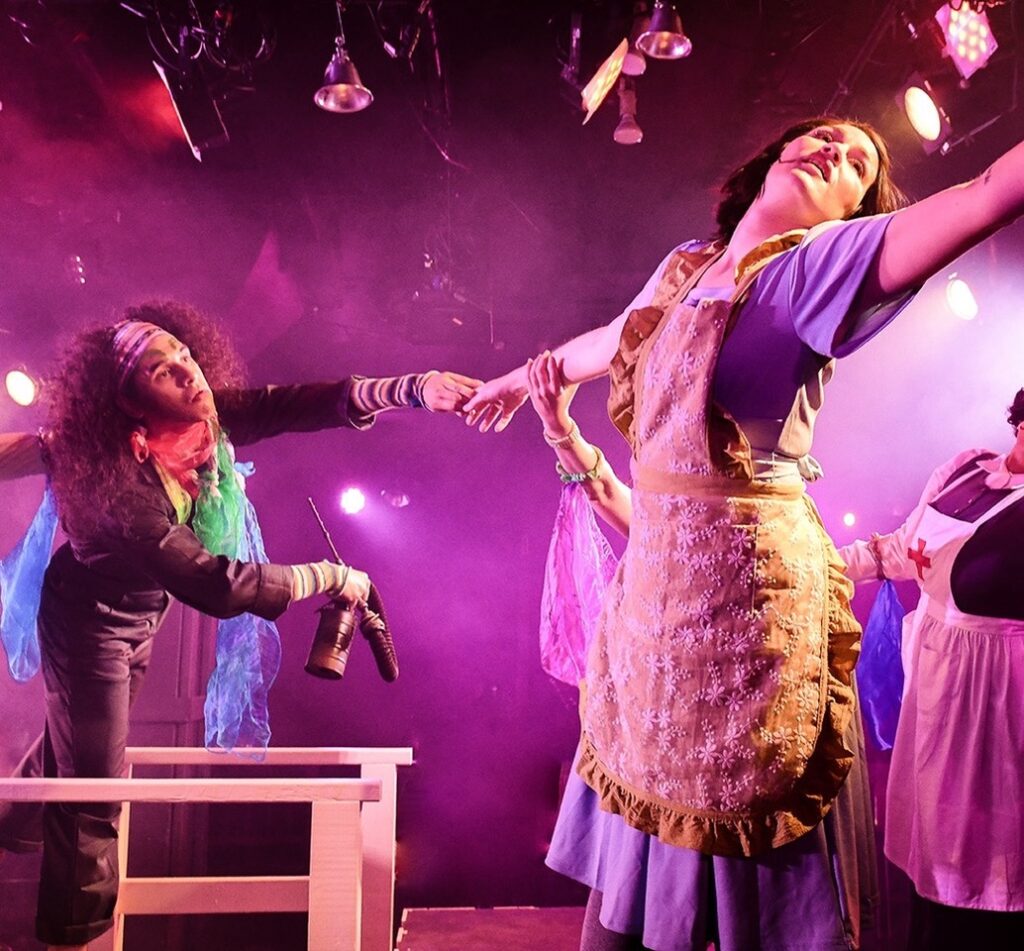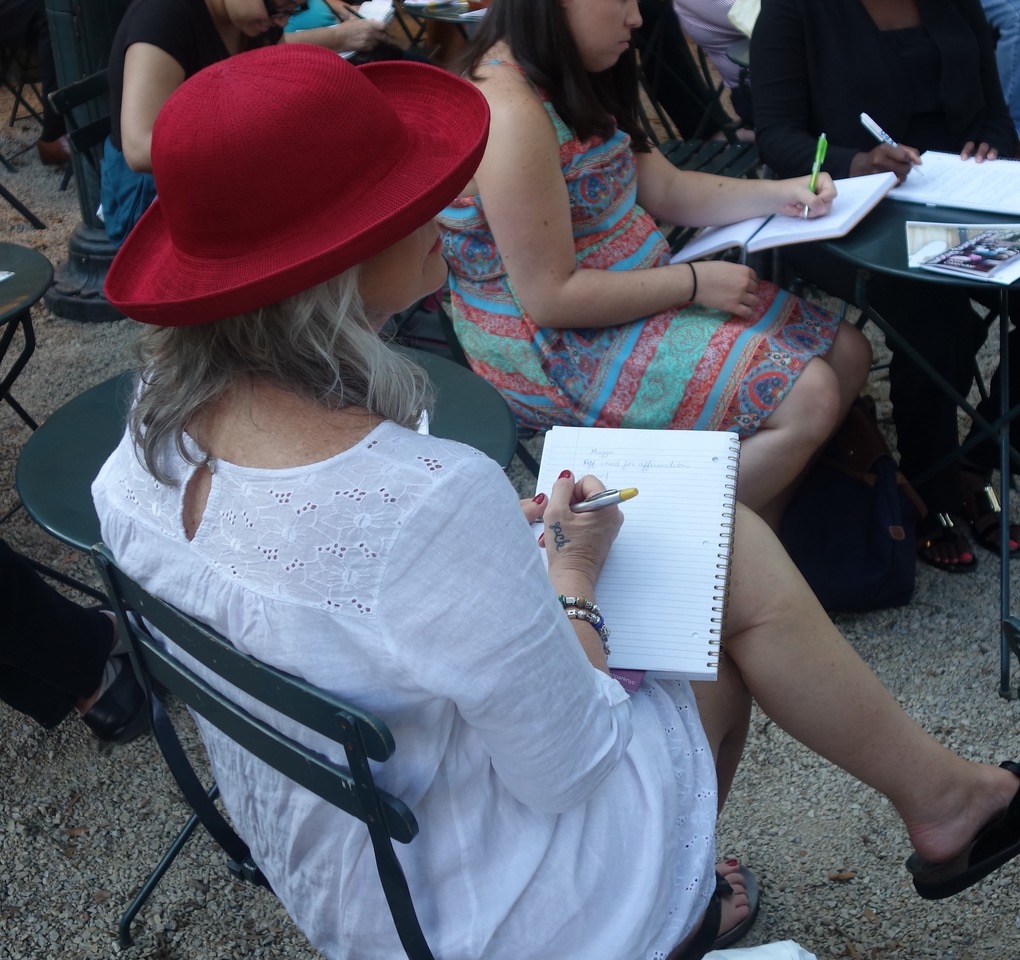
If you’ve ever been involved in live theatre—in any capacity—you know there’s nothing more exhilarating. Or terrifying. Or humbling. Or ego-building. Or addicting.
When that opening arrives, come hell or high water, people are in that space, and the lights rise and…
I like the lyrics to the song “Welcome to the Theatre,” from the musical Applause (adaptation of the movie All About Eve, lyrics by Betty Comden/Adolph Green). Which begins:
Welcome to the theatre
To the magic
To the fun
Where painted trees and flowers grow
And laughter rings fortissimo
And treachery’s sweetly done.
I myself was hooked on theatre for a long while—acting, directing, writing—and though I moved on to other exciting vices, I still hear that siren song. When I see a show, I like to sit as close as possible so I feel like I’m in it.
I don’t see nearly as much theatre as I used to, but recently I had the good fortune to attend three shows in 11 days.
Alice By Heart
In a quirky theatre in Chicago, in a black-box basement space. Low tech, low budget, but dynamite theatricality and performances. A teenage girl in London during WW2 re-enacts Alice in Wonderland to cope with the impending death of her best friend. Saw it with a childhood friend, with whom I used to see lots of shows, so felt like time traveling.
Once Upon a Mattress
A daffy musical version of The Princess and the Pea, on Broadway, starring Sutton Foster. High jinks of the highest order. Theatre gets even more thrilling when I see it through the eyes of my seven-year-old daughter who accompanied my wife and me. We were on the front row, and during the curtain call Sutton looked right at my kid and waved.
Stereophonic
All the rage on Broadway now, but I managed to snag a single ticket. Set in a recording studio in the 1970’s where a band is making an album. Like insects on the wall, we watch the collision of their talent and tension. Years back, I hired the playwright, David Adjmi, to teach for Gotham, which was prevented by his acceptance into a Julliard program. Glad he’s caught fire.
By now I’m guessing you want to dive into some theatre yourself. Well, Gotham offers Playwriting classes. And we offer two other ways to get that crazy performance high: Stand-Up Comedy Writing and Songwriting.
Or just go see something.
Also, I am appearing in something like a show soon. At the upcoming Gotham Writers Children’s Book Conference (mostly on Zoom, September 28 & 29), I will be interviewing our featured guest Maureen Johnson.
Not too late to get tickets!

Alex Steele
Gotham President






